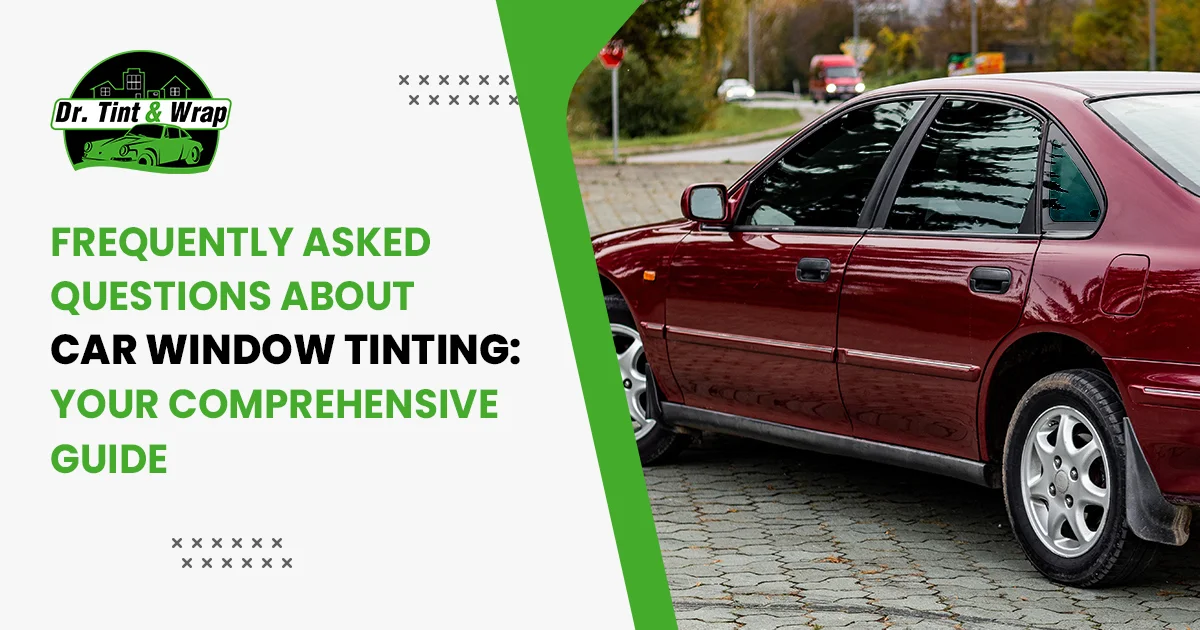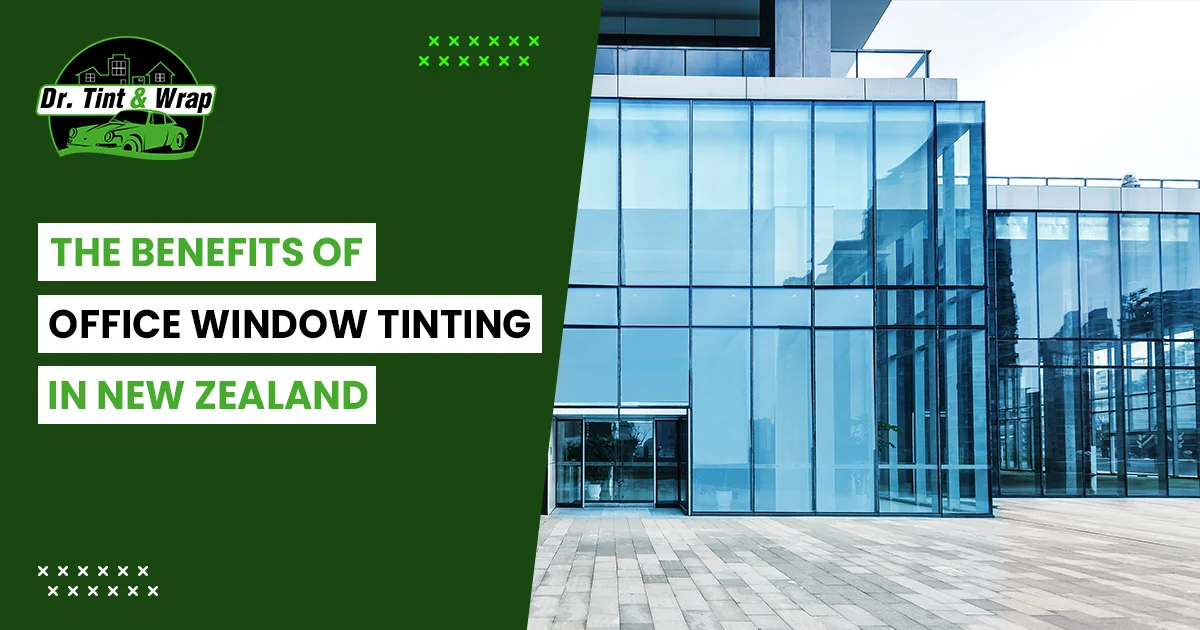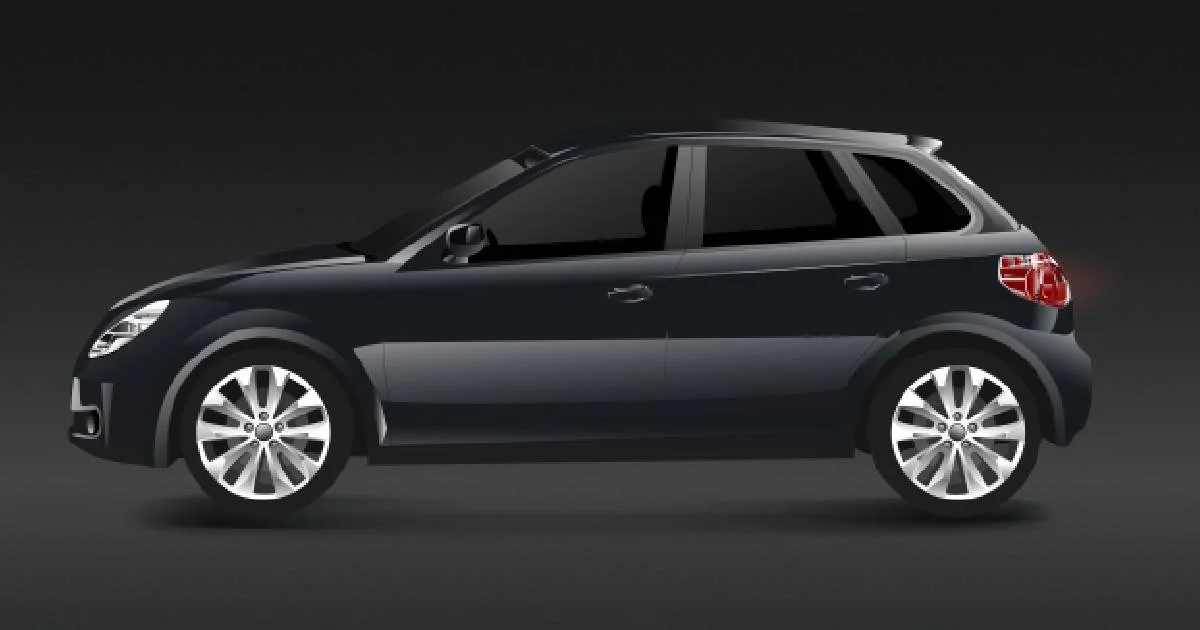
Frequently Asked Questions about Car Window Tinting: Your Comprehensive Guide
11 Oct 2023, By AdminCar window tinting has become increasingly popular for its numerous benefits, from enhancing privacy and aesthetics to protecting against harmful UV rays. However, with its rising popularity, there come several questions. In this blog post, we'll address some of the most common queries people have about car window tinting, providing accurate and informative answers to help you make an informed decision.
1.Why should I tint my car windows?
Car window tinting offers several benefits, including UV protection, heat reduction, glare reduction, enhanced privacy, and safeguarding your vehicle's interior from fading. It also adds to the overall aesthetics of your car.
2. Is car window tinting legal?
Yes, but the legal limits vary by state and country. It’s crucial to check local regulations. Most places have restrictions on how much visible light can pass through the tint. Professional tinting services are typically aware of local laws and ensure your tinting adheres to these regulations.
3. Can window tinting prevent my skin from getting damaged by UV rays?
Yes, quality window tints block a significant amount of UV rays, reducing your exposure and minimizing the risk of skin damage. This protection is especially important for people who spend a lot of time driving.
4. Does window tinting interfere with visibility, especially at night?
When professionally installed, window tints should not interfere with visibility, both during the day and at night. It’s essential to choose an appropriate tint shade and have it installed correctly to ensure clear visibility.
5. How long does the tinting process take?
The time taken to tint your car windows depends on the type of vehicle and the complexity of the job. On average, it takes a professional installer a few hours to complete the process. However, this can vary, so it’s best to check with the service provider.
6. Can I wash my car immediately after tinting?
No, you should wait a few days before washing your car after window tinting. This allows the adhesive to cure completely, ensuring the tint adheres properly to the glass. Follow the specific guidelines provided by the tinting professional for the best results.
7. How long will window tinting last?
The lifespan of window tinting varies based on the quality of the tint and the installation. High-quality tints, when professionally installed, can last between 10 to 15 years. Regular maintenance and cleaning also play a role in prolonging the tint’s life.
8. Can I tint my windows myself with a DIY kit?
While DIY kits are available, professional installation is recommended for the best results. Professional installers have the expertise and tools to ensure the tint is applied evenly and without bubbles or imperfections. DIY tinting can often result in subpar outcomes.
9. Will window tinting interfere with my car's electronics or radio signals?
No, high-quality window tints do not interfere with your car’s electronics or radio signals. Modern window films are designed to be non-conductive and won’t disrupt your vehicle's electrical systems.
10. How do I maintain my tinted windows?
Maintaining tinted windows is relatively easy. Clean them with a mild, non-ammonia-based cleaner and a soft cloth. Avoid using abrasive materials that could scratch the surface. Regular cleaning helps maintain the tint's appearance and longevity. In conclusion, car window tinting is a practical and valuable investment for your vehicle. By understanding the process and benefits, you can make an informed decision and enjoy the many advantages that tinted windows offer. Always opt for professional installation to ensure a high-quality and long-lasting result.

The Benefits of Office Window Tinting in New Zealand
11 Oct 2023, By AdminWhen it comes to enhancing the comfort and functionality of your home, window tinting is a solution that often goes unnoticed. In New Zealand, where climate variations are common, the benefits of home window tinting extend far beyond aesthetic appeal. In this article, we'll explore how home window tinting can significantly reduce your energy bills and lead to long-term cost savings, making it a smart investment for homeowners across the country.
Understanding the Energy Efficiency of Window Tinting
New Zealand experiences a range of weather conditions throughout the year, from scorching summers to chilly winters. During these extremes, the energy used to regulate indoor temperatures can skyrocket. This is where window tinting comes into play.
1. Heat Reduction: One of the primary benefits of window tinting is its ability to reduce heat gain. Tinted windows block a significant portion of the sun's heat and harmful UV rays from entering your home. As a result, your indoor spaces remain cooler during hot summer months, reducing the need for air conditioning.
2. Insulation: Window tinting also provides insulation benefits, helping to maintain a consistent indoor temperature. In winter, it helps to keep warmth inside, reducing the need for excessive heating.
Cost Savings Through Window Tinting
Now, let's delve into how these energy-efficient qualities translate into tangible cost savings for homeowners in New Zealand.
1. Lower Energy Bills: By reducing heat gain during the summer and heat loss during the winter, window tinting significantly reduces your reliance on heating and cooling systems. As a result, you'll see a noticeable drop in your energy bills year-round.
2. Extended Appliance Lifespan: Reduced reliance on air conditioners and heaters not only saves you money on electricity but also extends the lifespan of these appliances. They don't have to work as hard, which means fewer repairs and replacements.
3. Furniture and Flooring Preservation: Window tinting also blocks harmful UV rays that can cause fading and damage to your furniture, flooring, and décor. This means you won't have to spend as much on replacing or refurbishing these items.
4. Enhanced Home Value: A home with energy-efficient features like window tinting can command a higher resale value in the New
Zealand real estate market. Potential buyers are often willing to pay more for a home with reduced energy costs.
In New Zealand, where energy efficiency and sustainability are becoming increasingly important, home window tinting stands out as a practical investment for homeowners. By reducing energy bills, extending the lifespan of appliances, preserving your interior, and enhancing your home's value, window tinting offers numerous long-term cost-saving benefits.
So, if you're looking to make your New Zealand home more energy-efficient and cost-effective, consider investing in professional window tinting services. Not only will you enjoy a more comfortable living space, but you'll also contribute to a greener and more sustainable future while saving money in the process.

How Much Does It Cost to Tint a Car in Auckland?
11 Oct 2023, By AdminIf you're considering enhancing the privacy, comfort, and style of your vehicle, car window tinting is a popular and effective solution. But how much does it cost to tint a car in Auckland? In this blog, we'll explore the factors that influence the price ofcar window tinting, the benefits of getting your windows tinted, and what you can expect to pay in Auckland.
Factors Influencing Car Window Tinting Costs
The cost of car window tinting can vary based on several factors:
- Type of Tint Film: The quality and type of tint film you choose significantly impact the price. Standard dyed films are cheaper, while high-performance films, such as ceramic or metalized options, are more expensive due to their superior heat rejection and durability.
- Number of Windows: Tinting a full car (including all windows) will cost more than just tinting a few windows. The size and number of windows play a crucial role in determining the total cost.
- Vehicle Type: The make and model of your vehicle can affect the price. Larger vehicles like SUVs and vans generally cost more to tint than smaller sedans or hatchbacks due to the larger window surface area.
- Labor Costs: The expertise and reputation of the service provider can influence labor costs. Established shops with experienced technicians may charge more for their higher quality of service.
- Additional Features: Some tint films come with extra features, such as UV protection, glare reduction, and enhanced shatter resistance, which can add to the overall cost.
Average Costs of Car Window Tinting in Auckland
In Auckland, the price of car window tinting typically ranges from $150 to $800. Here’s a breakdown based on different factors:
- Basic Tinting: For a standard car with basic dyed film, you can expect to pay between $150 to $300.
- Mid-Range Tinting: For better quality films, such as hybrid or metalized tints, the cost ranges from $300 to $500.
- Premium Tinting: High-performance ceramic or infrared rejection films can cost anywhere from $500 to $800 or more.
Benefits of Car Window Tinting
Investing in car window tinting offers several advantages:
- Heat Reduction: High-quality tint films can significantly reduce heat build-up inside the car, making it more comfortable during hot Auckland summers.
- UV Protection: Tinted windows block up to 99% of harmful UV rays, protecting your skin and preventing the interior from fading and cracking.
- Glare Reduction: Tinting reduces glare from the sun and headlights, enhancing driving comfort and safety.
- Privacy and Security: Tinted windows provide greater privacy by making it harder for outsiders to see inside your vehicle. They also add a layer of security by making it more difficult to break the glass.
- Aesthetic Appeal: Tinted windows give your car a sleek, stylish look that can enhance its overall appearance.
Finding a Reputable Tinting Service in Auckland
To get the best value for your money, it's essential to choose a reputable car window tinting service in Auckland. Here are some tips to help you find a reliable provider:
- Read Reviews: Check online reviews and testimonials from previous customers to gauge the quality of service.
- Ask for Recommendations: Seek recommendations from friends or family who have had their windows tinted.
- Check Certifications: Ensure the service provider uses high-quality films and employs certified technicians.
- Compare Quotes: Get quotes from multiple providers to compare prices and services offered.
Conclusion
Car window tinting is a worthwhile investment that enhances your vehicle's comfort, safety, and appearance. In Auckland, the cost can vary depending on several factors, including the type of tint film, the number of windows, and the service provider's reputation. By understanding these factors and doing your research, you can find a tinting solution that fits your budget and meets your needs. Whether you opt for basic tinting or premium films, the benefits of car window tinting make it a smart choice for any vehicle owner.

10 Things You Should Know Before Car Wrapping
11 Oct 2023, By AdminIn the world of vehicle customization, car wrapping has become increasingly popular. Whether you're looking to give your car a fresh new look or advertise your business on the go, car wrapping offers a versatile and affordable solution. However, before diving into the world of vinyl wraps, there are several key factors to consider. In this blog post, we'll explore 10 things you should know before car wrapping.
- Car Wrapping: Car wrapping involves applying a vinyl film to the exterior of a vehicle. This film can come in a variety of colors, finishes, and textures, allowing for endless customization options.
- Temporary Transformation: Unlike paint, car wraps are not permanent. They can be easily removed without damaging the vehicle's paint underneath. This makes car wrapping an ideal option for those who like to change up their car's appearance frequently.
- Cost Considerations: While car wrapping is generally more affordable than a custom paint job, it's still an investment. The cost can vary depending on the size of the vehicle, the complexity of the design, and the quality of the vinyl used.
- Quality Matters: Opting for high-quality vinyl and professional installation is crucial for a long-lasting and visually appealing wrap. Cheaper materials may fade or peel over time, detracting from the overall look of your vehicle.
- Surface Preparation: Proper surface preparation is essential for a successful car wrap. The vehicle's exterior must be thoroughly cleaned and free of any dirt, wax, or debris that could affect adhesion.
- Durability and Maintenance: A well-installed vinyl wrap can last several years with proper care. However, it's essential to follow manufacturer recommendations for maintenance, which may include avoiding harsh chemicals and abrasive cleaning methods.
- Design Considerations: When designing your car wrap, consider factors such as visibility, readability (for advertising wraps), and overall aesthetic appeal. Work closely with your designer to ensure your vision is accurately translated onto the vehicle.
- Legalities and Regulations: Before applying a car wrap, familiarize yourself with local laws and regulations regarding vehicle modifications. Certain colors or designs may be restricted, especially for commercial vehicles.
- DIY vs. Professional Installation: While DIY car wrapping kits are available, professional installation is often recommended for the best results. Professional installers have the experience and expertise to ensure a seamless finish and minimize the risk of errors.
- Removal Process: When the time comes to remove your car wrap, it's essential to do so carefully to avoid damaging the underlying paint. Professional removal services can help simplify this process and ensure a smooth transition back to the vehicle's original appearance.
In conclusion, car wrapping offers a convenient and customizable way to transform your vehicle's appearance. By understanding these key considerations before diving into a car wrapping project, you can ensure a successful outcome that enhances the look and value of your vehicle. Whether you're looking to make a statement on the road or promote your business, a professionally installed car wrap can help you achieve your goals with style and versatility.
